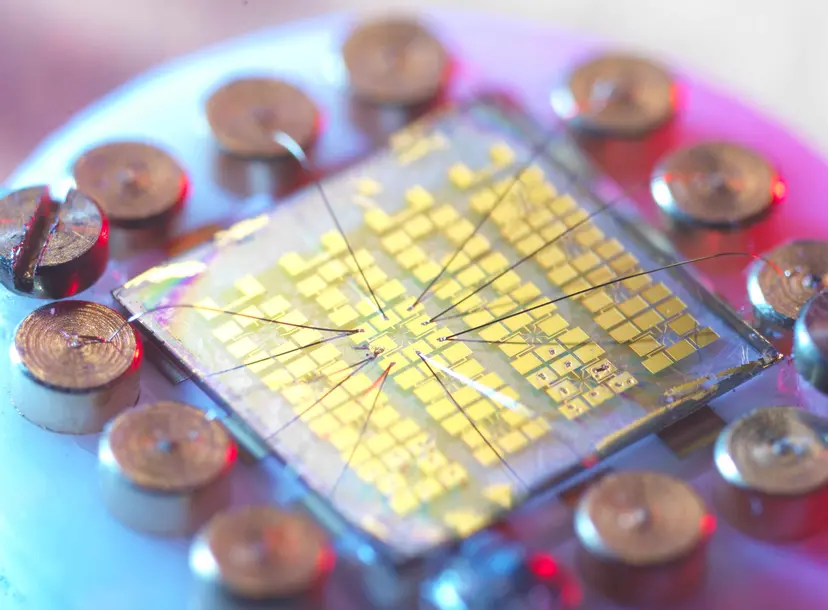Quantum sensors – rooted in the principles of quantum physics – have the potential to transform our technological landscape in ways that might seem straight out of science fiction.
But what are quantum technologies? Well, the world around us is very different from the quantum world. If we start to make things really cold or really small, nature starts to behave very differently from the world which we observe around us. And that has some profound impacts on how we how we build technology and use it.
Beyond the familiar confines of our daily experiences, the quantum realm shows itself when temperatures approach absolute zero or objects are reduced to atomic dimensions. This shift in temperature and size leads to transformative behaviours that open exciting new avenues for technological innovation.
Quantum effects aren't confined to this theoretical realm – they've already started to shape our world. Nuclear magnetic imaging, lasers and semiconductor devices are just a few examples of how quantum physics has already revolutionised our lives.
Cold and small
In the realm of quantum technologies, the boundaries between the observable and the unimaginable blur. Picture a world where we manipulate temperature to near absolute zero and shrink objects to atomic dimensions. In this quantum realm, the very nature of reality transforms, offering profound insights into the building blocks of our universe.
When we cool things down to near absolute zero and reduce them to nanometer scales, nature's behaviour starts to take a mesmerising turn. It's here that particles reveal a wavelike nature, presenting us with opportunities to revolutionise technology as we know it. Imagine sensors so precise that they can detect electromagnetic fields generated by the brain. That's the promise of quantum technologies. We're not just talking about advancements, we're talking about a paradigm shift in our approach to understanding and tackling diseases such as epilepsy and Alzheimer's.
Medical marvels and beyond
However, the applications extend far beyond medicine. Quantum computing, with its potential to tackle the seemingly impossible, holds the key to groundbreaking discoveries. Quantum communication ensures a level of security that was once deemed unattainable.
Entering the quantum realm comes with its challenges. Fragile quantum effects, easily disrupted by external noise, demand a level of precision and isolation that pushes the boundaries of current scientific understanding. Yet, the breakthroughs are tangible and the impact is already evident.
Inside the quantum lab
Take a moment to step inside the National Physical Laboratory (NPL) quantum laboratory. A dilution refrigerator – a colossal cooling machine – brings the temperature down to almost absolute zero. Within this frigid environment, a semiconductor device, meticulously crafted, allows us to control the motion of individual electrons.
Even though an electron is a very small quantum particle, it takes an enormous amount of machinery and equipment to actually control their motion and to measure their behaviour. At NPL we’re working on controlling the motion of individual electrons for applications in developing standards for electrical current, which would be used in in metrology. It’s also possible to build interferometers out of these single lateral devices that can be used as very sensitive sensors for electric fields, which could have applications in in medicine or geophysics.
Electrons for quantum breakthroughs
What does all this mean for the world of quantum research? By controlling the motion of electrons at unprecedented levels, we're developing new standards for electrical currents and interferometers. These innovations, born from the marriage of extreme cold and strong magnetic fields, hold the key to applications in quantum communications, computing and sensing.
As we delve into the potential of quantum sensors, it's clear that we're at the cusp of a transformative era. These sensors enable us to measure the unmeasurable. From medicine to geophysics, the applications are vast and the endless possibilities are yet to be fully realised. However, the potential is limitless. Whether it's understanding diseases on a microscopic level or revolutionising computing, the quantum journey is just beginning.
Join us at the Royal Institution on 29 November for a deeper dive into the world of quantum sensors and the fascinating future they hold.
A future with quantum sensors | Royal Institution (rigb.org)
